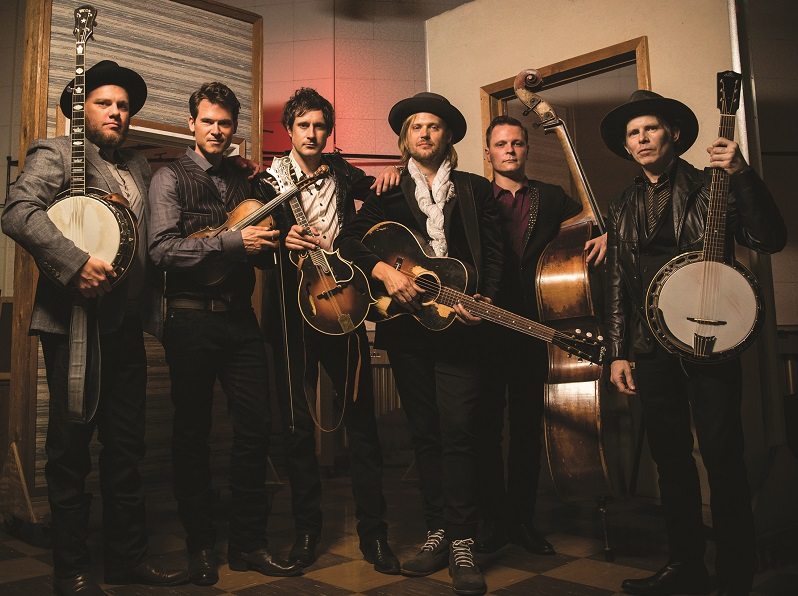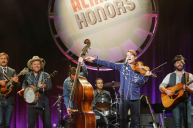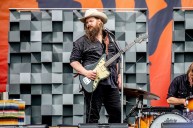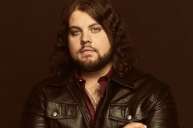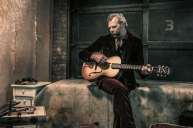Old Crow Medicine Show have more in common with Bob Dylan now than the story behind "Wagon Wheel" or the band's live Blonde On Blonde tribute album. The string band-inspired group places focus on electric instrumentation at times on Volunteer. Unlike Dylan, they probably won't get booed at the Newport Folk Festival or anything like that. Instead, their electrified, and countrified, new sound should win over more of the old guard.
Videos by Wide Open Country
These amplified new wrinkles to the band's sound point not just to old-time music, but also to past mainstream proponents of honoring thy roots. For example,"Old Hickory" resembles something Levon Helm might've belted out for The Band, while old-timey stomper "Shout Mountain Music" isn't far removed from what the Louvin Brothers might've heard as kids at week-long tent revivals. Throw in traditional country's not-so-secret weapon Dave Cobb as producer, and you have a new approach to the time-tested sounds at Old Crow Medicine Show's core.
In anticipation of the album's April 20 release date, guitarist, banjo player and vocalist Critter Fuqua chatted with Wide Open Country about the band's relationship with Marty Stuart, recording Volunteer with Dave Cobb and the inspiration behind going electric.
BM: Doc Watson helped discover the band. It seems like after him, it would've been Marty Stuart, certainly in Nashville. He pointed people to what you guys were doing. Is that correct?
CF: Yeah, that's pretty accurate. Marty Stuart was there the first time we were on the Opry. He introduced us.
BM: Have you stayed in touch with him?
CF: We've seen him a lot. We've been in touch with him since we first met him. I believe it was in 2013 -- he showed up in Cleveland, Ohio and invited us onto the Grand Ole Opry. He's been a cheerleader for us ever since. He's been in our videos, and we've played with him on stage and all kinds of things.
BM: He's such a fountain of knowledge and has an amazing collection of memorabilia. Were you guys able to learn even more about roots music just from being his friend?
CF: He's definitely the curator and the archivist of country music. Yeah, he's the man.
BM: Was working with Dave Cobb something the label suggested, or were you all fans of the work he does with more traditional country music?
CF: We were trying to figure out who'd be good as producer, and he was definitely at the top of the list. Dave Cobb is certainly making a name for himself and has made a name for himself. We chose him. This was years before the label was involved.
BM: How was he to work with compared to other producers?
CF: I loved working with Dave Cobb. We sent him a lot of stuff. He kind of recommended we didn't play anything live or arrange or touch any of it. We just came in, and he trusted the band to play live. We picked the songs and we kind of got it done in two weeks' time.
It was a lot of fun to work with Dave Cobb. He's got a real zen kind of quality about the way he does his work.
Read More: Old Crow Medicine Show's 'Wagon Wheel' and How it Rose to Fame
BM: Do you guys normally record things live as a band?
CF: Yeah, I think there's a time when we recorded most of our stuff live. With our producer for Remedy, Ted Hutt, we did a lot of track building and stuff that wasn't live, which was a great experience. So, we've done a lot live, and we've done a lot not live. I think we're going back to doing a lot of stuff live in the studio.
BM: With your string band roots, is it any easier to just jam in the studio as opposed to doing it all piece by piece?
CF: It really depends on what you want to do. It depends on the song. Yeah, we started out as a string band, and we can definitely still play that string band music. That's our core. When we do that stuff, I think it just comes out naturally.
BM: You've incorporated electric guitars into the new album. Might there be any kind of backlash from established fans?
CF: A lot of the stuff on this album is real country. There's electric guitar in country. I think there's a real barrier. When people think of folk music or roots music, some people think that electric instruments aren't allowed. That's not true at all. I mean, we're not talking amplifiers and guitars with Marshall stacks and lot of gain cranked up. We're talking Johnny Horton-sounding electric guitar. The greats had them.
BM: Speaking of folk artists with electric guitars, I'm sure you get asked a lot about Bob Dylan and "Wagon Wheel." Did Darius Rucker's version point more mainstream country fans to you guys?
CF: He definitely put it more on the map. It had kind of grown on its own without radio airplay. Certainly, when Darius Rucker played it, it got to a bigger audience. We played it with him on stage. I think of course it's grown, and more people know about the song now, probably, than know about the band.
That song has really taken its own course. It's pretty cool.
BM: From your perspective, when did it become clear that the song had become a big deal? How do you notice, as an artist, when something like that kind of organically keeps growing?
You start to notice the songs that people like-- sometimes regionally and sometimes all over. For whatever reason, that one just stuck.
